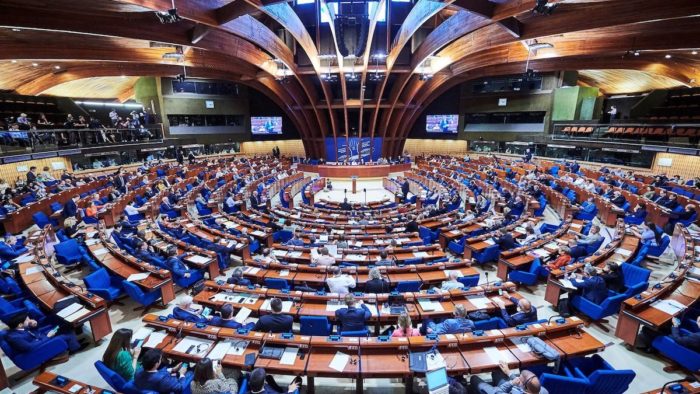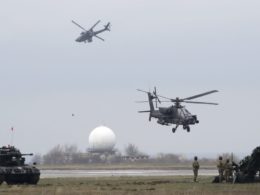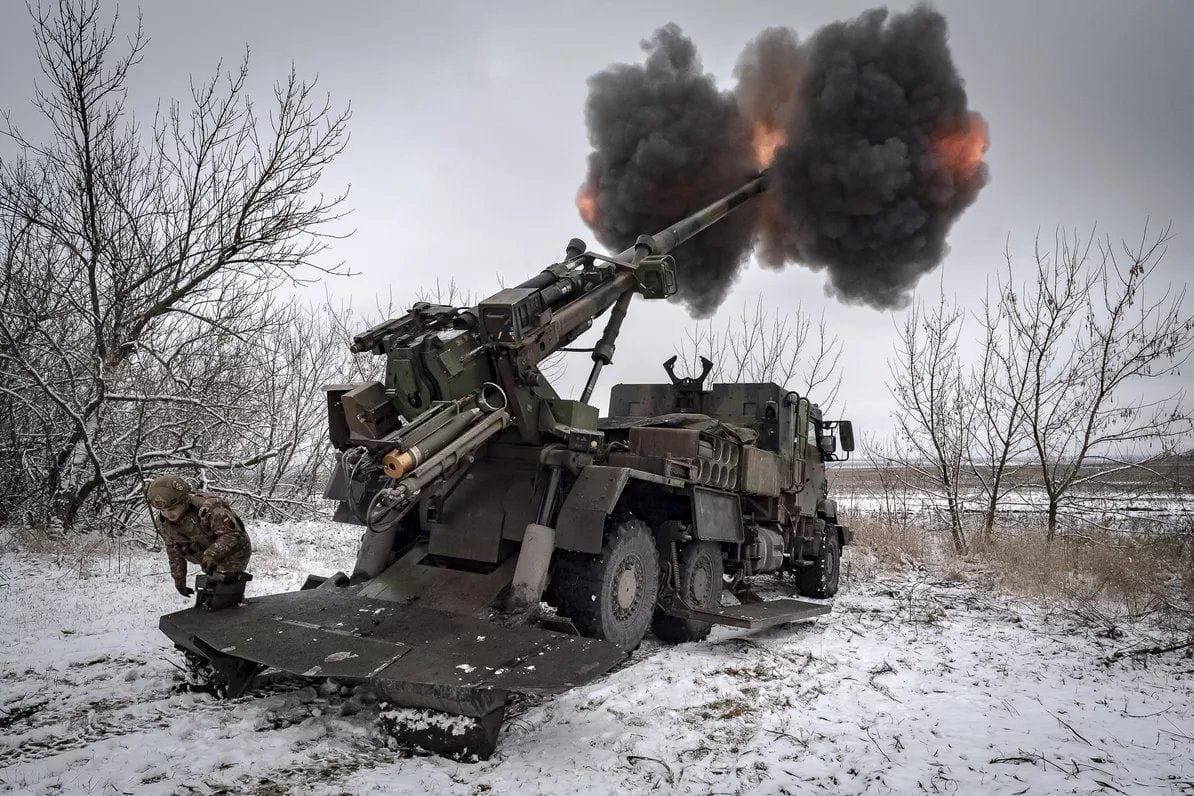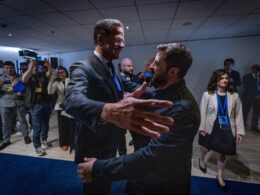One month ago, to the day, I argued that the West would become heavily involved if Russia invaded Ukraine.
“For 8 years, Russia has done its utmost to prevent the West from becoming actively involved in Ukraine. However, a full-scale invasion will have far-reaching consequences for Europe. Even the rumours of war affect the financial market. War will trigger extensive sanctions and subsequent retaliation with major economic consequences. It will also trigger a refugee crisis with more than 4 million refugees.
An invasion could trigger a new Cold War and an arms race. The Russian economy will be put under enormous pressure.”
This week the West is truly coming together to confront Russia and to ensure it backs down.
Yesterday’s meeting in PACE was historical. Its recommendation to the Committee of Ministers of the Council of Europe to exclude Russia after 25 years sends an unambiguous message:
“Since 25 February 2022, the war waged by the Russian Federation against Ukraine has signalled the opening of a new phase in European history. The Russian Federation has chosen recourse to force over dialogue to advance its foreign policy objectives. Despite being a permanent member of the UN Security Council, it has chosen aggression, undermining peace and security. It has violated the Statute of the Council of Europe and the obligations and commitments it undertook upon becoming a member of the Organisation.
In the common European home, there is no place for an aggressor. In its Opinion pursuant to Statutory Resolution (51) 30, the Assembly should call on the Committee of Ministers to request the Russian Federation to withdraw from the Council of Europe.
For the Russian Federation to be able to return as a Council of Europe member on an equal footing with the others, a profound change is necessary. The infringements of international law and the breach of trust caused by this aggression are so serious that, if Russia wished to be a member of the Council of Europe, it should submit a new application and show its commitment to democracy, human rights and the rule of law."
NATO members are joining hands as well. After years of political unity, but discourse on both NATO deterrence and military support to Ukraine, the Alliance is in the process of closing ranks. According to NATO General Secretary, Jens Stoltenberg:
“There are now hundreds of thousands of forces on heightened alert across the Alliance. One hundred thousand US troops in Europe. And around 40,000 troops under direct NATO command, mostly in the eastern part of the Alliance. Backed by major air and naval power. The US is currently deploying Patriot batteries to Poland. And Germany and the Netherlands are also deploying Patriots to Slovakia. […]
Russia’s invasion of Ukraine, and its military integration with Belarus, create a new security reality on the European continent.
On land, this could include substantially more forces in the eastern part of the Alliance, at higher readiness, and with more prepositioned equipment. We will also consider major increases to our air and naval deployments. Strengthening our integrated air and missile defence. Reinforcing our cyber defences. And holding more and larger exercises. I expect we will task NATO’s military commanders to develop options for our Madrid Summit in June.
Major reinforcements of our defence will require major increases in investment. I welcome that Germany and other Allies have already announced they are stepping up. And I encourage all Allies to spend a minimum of 2% of GDP on defence. We must do more. So we must also invest more to protect peace and freedom, and uphold our values, at this critical time.”
The outcome of today’s extraordinary meeting of the Defence Ministers will lay the foundation for the extraordinary NATO Summit on 24 March. I am sure Kremlin is feeling the wind shift.
On top of this, China also wants an end to the war, as the consequential sanctions affect the world economy.
According to the Ministry of Foreign Affairs of the People’s Republic of China:
“China always opposes the use of sanctions to solve problems, and even more opposes unilateral sanctions that have no basis in international law, which will undermine international rules and bring harm to the people's livelihood of all countries. China is not a party to the crisis, nor does it want the sanctions to affect China.”
In an article by the Russian analyst, Dmitry Goncharov, he stresses that:
“It is not in Beijing's interests to rely solely on an anti-Western alliance with Moscow. Russia may have a powerful military, but its economy is in long-term structural decline and its GDP is below average, not much more than Spain's. For all the talk of ties to Moscow, it's worth remembering that China's economic interests in Russia are paltry compared to the interests it shares with the West. In 2021, trade between China and Russia was less than a tenth of the combined trade with the US ($657 billion) and the European Union ($828 billion).
The longer the war goes on, the more it will strengthen the Western alliance around the idea of an East-West confrontation based on values, bringing the United States and the European Union even closer and boosting military budgets around the world. This is not good for China, which would rather maintain profitable economic ties with the West and focus its resources on domestic development.”
The Russian invasion of Ukraine has even brought a divided USA Congress together, empowering the political center, the New York Times
reports.
“The escalating crisis in Ukraine is upending policy and political thinking on both the left and the right on Capitol Hill, as an immediate threat to the global order and soaring energy prices empower the political center at the expense of the two parties’ flanks. 'It’s bringing Congress together in a way, frankly, I haven’t seen in my 12 years,' Senator Chris Coons, Democrat of Delaware and a confidant of President Biden, said on Tuesday of the consensus to support Ukraine. 'You’d have to go back to 9/11 to see such a unified commitment'.”
Both recent and upcoming events are further reinforcing with the continuous escalating sanctions against Russia. I believe the next days and weeks will be crucial and, hopefully, mark a sharp adjustment of the foreign policy of the West.
President Putin, you are about to feel the full weight of the Western resolve. You have already lost. It is time to stop, retreat and make amends.
Related:
- NATO’s defining moment is now or never
- What if? Hybrid War and consequences for Europe (part 1)
- 1 March 2022 marked the end of “neutrality” in Europe





